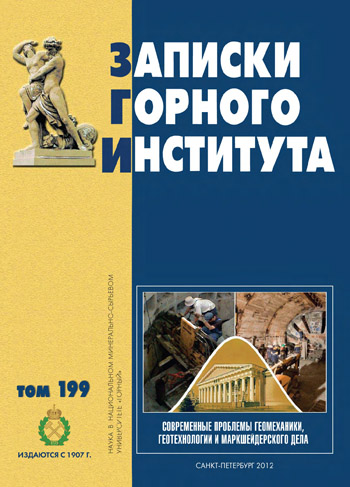Historical analysis of the system of estimation and expert’s examination of explored ore reserves in Russia
- 1 — Ph.D., Dr.Sci. professor National Mineral Resources University (Mining University)
- 2 — Ph.D. associate professor National Mineral Resources University (Mining University)
- 3 — Ph.D. associate professor National Mineral Resources University (Mining University)
- 4 — Ph.D., Dr.Sci. professor National Mineral Resources University (Mining University)
Abstract
Acting in Russia methodology of estimation and expert’s examination of calculated mineral reserves has been organized in the Soviet period, during development of the rigidly centralized system of the state planning and management. Since, 20 years there isn’t in the country any state monopoly (and financing) in the mining brunch and geological exploration. The new approaches are needed in procedure of estimating mineral reserves explored by the private enterprises. Anyway, functions, which the State Commission on mineral reserves (SCR) used to carry out in the Soviet time, remain nearly the same at present. Its full-scale authority, obligatory specifications are in clear contradiction with real economic relationship in the country. Computer modeling of ore bodies, composed on the base of geostatistical analysis of the exploration data, determines their natural contours and the ore grade distribution far more precisely than the formal index of the reserve’s category. There isn’t any necessity to approve in the SCR the so called group of the ore deposit complexity, nor the Technical-economic validation of limiting conditions. The mere procedure of the state approval of explored ore reserves ought to have the record keeping character.
References
- Astakhov A.S. Economics of exploration, mining and processing of mineral commodities (geoeconomics). Moscow, 1991.
- Journal of the Geological Committee. 1928. Vol.3. N 6.
- Mining encyclopedia . Moscow, 1986. Vol.2.
- Nescis V.N. Foreigners are not accustomed to a legislatively fixed schizophrenia. URL: www.finmarket.ru/z/nws/interview.asp?id=2641458
- Pertel D.A. Computer technologies in practice of development of the Russian subsurface // Proceedings of the Mining Institute. 2005. Vol .162.
- Russian Code for the Public Reporting of Exploration Results, Mineral Resources and Mineral Reserves (NAEN Code). Moscow, 2011.
- Smirnov V.I. Geology of useful minerals. Moscow, 1976.
- Starostin V.I., Ignatov P.A. Geology of mineral commodities. Moscow, 2004.
- Chetverikov L.I. Concepts of reserves and forecasted resource of the mineral commodity // Journal of the VSU, geological series, 2002. N 6.
- Sharapov I.P. About calculation of ore reserves / Materials of symposium of the MSIN. Moscow, 1989.
- . Hoover Y.C. Principles of Mining. London – New York, 1909.
